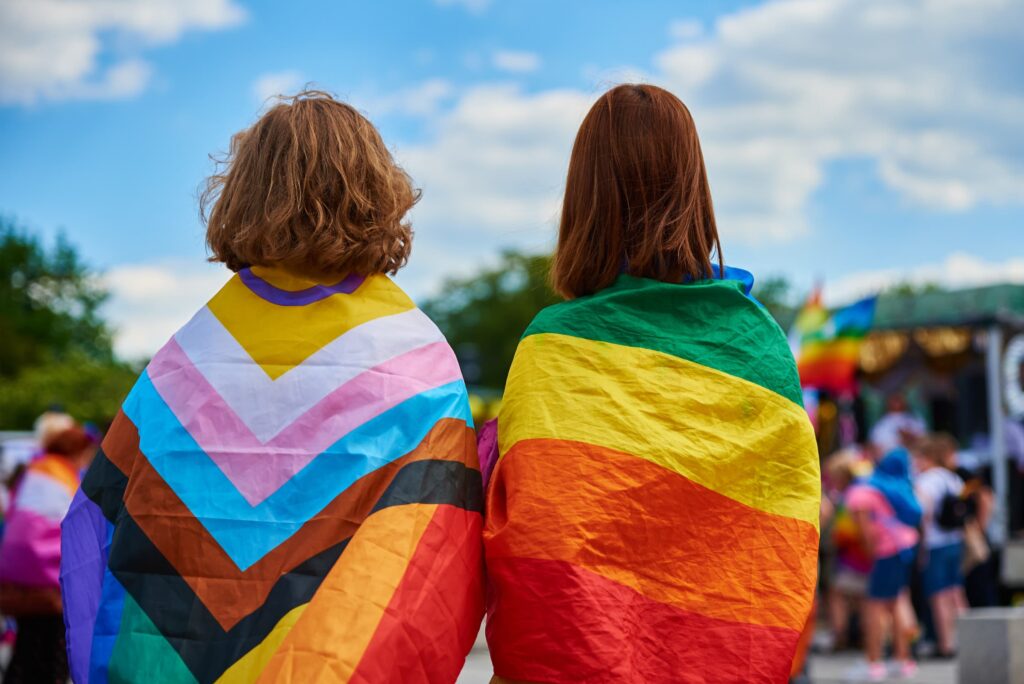
We live in a difficult moment in the march toward LGBTQ equality.
In some ways, it’s a contradictory one. We’ve achieved greater acceptance and representation than ever before. But alongside growing visibility, we’ve experienced growing hostility. And a new wave of attacks is coming down hardest on some of our community’s most vulnerable: LGBTQ youth – specifically transgender kids.
We’re witnessing an onslaught of anti-LGBTQ bills in state legislatures, with more than 600 bills filed so far in 2023. Too many mornings, I wake up feeling like I did the day after Prop 8. But while Prop 8 was a collective gut punch and a wake-up call for the country, today’s blows are so frequent, so routine, that they leave little room for collective response.
This isn’t the first time LGBTQ Americans have been weaponized in political culture wars. Who could forget Karl Rove’s marriage amendments in the early 2000s, or the days of Anita Bryant and Joseph McCarthy? But today’s attacks feel especially cruel, since so many of them target children and their freedom to carry out their daily lives – in their classrooms, their doctors’ offices, even their own homes.
As a gay man, I stand with transgender youth – they are part of my community, and I am part of theirs. With every new attack, I find myself returning to the same questions: How do we respond? Where should we invest? What can we do?
On the one hand, this moment calls for a different response – new ideas, new voices, new types of engagement. But on the other, we can look back on decades of victories and setbacks to find key lessons that we can and must use as a starting point.
* * *
In my time in our movement, I’ve learned three important lessons.
First, we need to meet people where they are. Second, we can’t go it alone. And third, critical change happens at the community level.
Coming out in a small, Christian town in Iowa, I learned early on the value of the journey story: just because someone didn’t accept me immediately or use the “right language” instantly didn’t mean they couldn’t get there. Many of them did – and they are some of my biggest champions today.
Years of advocacy in conservative states have shown me the importance of leaning on stories, relationships, and language that broad audiences can relate to and empathize with, wherever they might be in their journeys.
We can’t demonize people who don’t “get it right” the first time.
Sure, we might be missing out on click-bait, viral “gotcha” moments. But with patience, grace, and a whole lot of persistence, we leave the door open to new and unexpected allies.
These allies are crucial partners on our path to securing full equality. We can’t go it alone. It starts with those who already know and love us – parents, family members, colleagues – who are often the best messengers to reach conflicted audiences. Over the past few months, I’ve been reminded how much power these voices can carry through the courageous stories of parents of transgender kids.
We also need to be more expansive in how we think about who’s on our side.
Business, faith, and, yes, even conservative leaders are especially well positioned to engage large and hard-to-reach audiences. Sometimes this means giving our allies space to speak in terms that their constituencies will relate to and understand. These might not always be the words we use to describe ourselves. But it’s an important starting point for genuine conversation, rather than speaking past one another.
This doesn’t mean we should engage with every opponent. Some people are true enemies of equality, who want to see their hate realized through harmful policy and even physical violence. With people like this, there’s no common ground to be found.
But it’s also important to remember that they are outnumbered. Social media and our fragmented news environment have given the most extreme voices a megaphone and forced our attention on them – and in doing so, they have also concealed the large swaths of Americans who are open to dialogue and capable of change.
While shifting the national narrative will be critical, the real action is at the local level.
The states are the battleground where anti-LGBTQ attacks are being felt most acutely. This is where local advocates, parents, and transgender leaders are responding in real time, and we must have their back. As we learned in the fight for marriage, we need to change hearts and minds in places like Florida, Georgia, Texas, and Utah before we can expect leaders in Washington, D.C., to act.
That means recommitting to the good work already underway: supporting transgender youth and families in sharing their stories and showing the true impact of harmful policies – connecting networks of student activists to amplify their collective voice – forging partnerships across business and faith communities to remind LGBTQ kids that there are people who love them in every sphere of life.
It’s also a time for bold new ideas.
This week the Gill Foundation announced an open call to our grantees and partners for innovative projects that build on the principles I’ve described here, adapting and expanding them to meet our moment. In the weeks ahead, we look forward to collaborating with big thinkers across the country, especially transgender leaders, who are hungry to turn this challenge into an opportunity for change.
* * *
The difficulty of this moment can leave us feeling disheartened and unsure how to act. But we’ve weathered storms before, and we’ve won before – even on goals that for decades seemed out of reach.
When challenges feel overwhelming, sometimes the best thing to do is to go back to basics. I believe this is the starting point for our path forward. I hope you’ll join us in the important work ahead.
